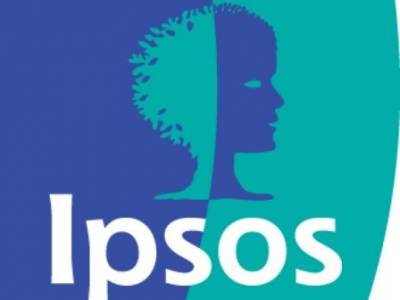Ipsos study reveals India as 'Happiest Nation' in APAC
The latest study conducted by Ipsos APAC and Toluna, reveals that Asia Pacific remains a highly happy place, with a vast majority of its citizens saying they feel happy or very happy. India in particular, shows particularly high happiness scores, with 91% happy overall (very happy 55% and rather happy 36%).
Study Highlights:
• Latest Ipsos APAC happiness survey reveals high levels of happiness still felt throughout the region.
• India shows highest happiness level (91% happy or very happy) while a third (32%) of Japanese citizens declares they are unhappy or very unhappy, including 38% of men.
• Own health/physical well-being still top contributing factor of happiness (42%) for people who declare themselves happy, with personal financial situation the top contributing factor of happiness (58%) for unhappy citizens.
• Poll conducted in March 2014, in India, Japan, Hong Kong and Singapore, with 2,000 consumers aged 18 – 50 years old.
Amit Adarkar, Managing Director for Ipsos India explains: “The Indian economy is showing signs of recovery with green shoots on the horizon. The growth in auto sales, exports, services sector, and healthy corporate performance — all seem to suggest that growth appears to have rebounded.“
He adds, “Indians are hopeful and happy that the country's new Prime Minister, Narendra Modi, will be able to push through further pro-growth policies which will generate more jobs and prosperity.”
At the opposite of the happiness spectrum lays Japan, where a third (32%) of citizens declare themselves unhappy or very unhappy, including 38% of men.
Throughout the region, women seem to show greater level of happiness overall. Indian women in particular show great happiness levels (56% very happy, 94% happy overall). In Singapore, 29% of men say they are unhappy, against only 19% of women. Same in Japan, with 74% of happy women against 62% of men. A large proportion of Japanese men are unhappy (38%) including 12% who say they are very unhappy.
Meanwhile 33% of the Japanese young (18 – 29 years old) are also unhappy. Commenting on the Japan situation, Shunichi Uchida, MD for Ipsos Japan says: “Living in a highly developed society, where poverty is low and most are sufficiently comfortable, it would seem to take a lot more to make Japanese people happy. It is typical of the Japanese culture to seek perfection in every aspect of their lives, including their happiness. With a general lack of satisfaction for the status quo, Japanese continue to strive for happier lives. ”
Looking at happiness factors across the region
Looking at factors most contributing to happiness, reasons differ depending on whether respondents themselves said they feel happy or not: Own health/physical well-being still top contributing factor for happiness (42%), with personal financial situation quoted as the top contributing factor by the unhappy citizens (58%) in the region.
In Hong Kong, with 85% happy, relationship with parents overtakes finances as a booster to happiness in Hong Kong and the same consideration of relationship with parents also makes it to the top three factors contributing to unhappiness in Q1 this year.
Meanwhile in Singapore, significantly more men are concerned about finding someone to be with than women (17% men vs 10% women). The men also place greater importance on their sex life (18% men vs 5% women) and their personal finances than women (41% men vs 32% women).
Ipsos Singapore MD Miranda Cheung comments: “With increasing number of women entering the workforce and rising independence, a multitude of avenues arise via which women can derive their happiness.”
















Share
Facebook
YouTube
Tweet
Twitter
LinkedIn